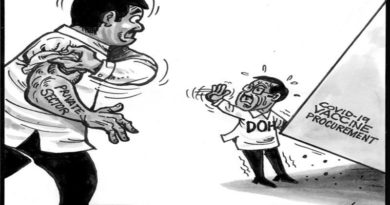EDITORIAL: The Straits Times says- Hard decisions ahead as downturn bites
The Straits Times
With preliminary data showing that the unemployment rate rose to 2.9 per cent in June – the highest in over a decade – the National Wages Council (NWC) will reconvene this year to update its recommendations on wages. This is only the fourth time that the council is relooking its guidelines in the same year. Many employers followed its earlier recommendations to reduce other costs and tap government support before slashing wages. But there remain significant economic headwinds and uncertainties. Labour chief Ng Chee Meng has warned that while government relief has shielded everyone from the worst economic effects of the Covid-19 pandemic, there will be more cutbacks and retrenchments ahead.
.


.
Much of the uncertainty surrounds how long the pandemic will last. Countries which earlier earned worldwide admiration for their handling of Covid-19 are seeing a second wave of infections. Australia and Japan are now recording more daily cases than at the peak of the first wave in March and April. An imported, and more infectious, strain has spread in Hong Kong. Until an effective vaccine is found, or the virus burns itself out, it will find a way to sneak past borders and spread among communities. As countries cycle through repeated lockdowns and safe distancing measures, businesses will continue to experience under-capacity and weak demand, and face pressure to retrench workers.
.


.
Measures similar to those taken during past crises can help deal with the weak labour market. On top of a cut to employers’ Central Provident Fund contributions, the NWC may well suggest a wage cut of several percentage points, just as it had done in the 1998 Asian financial crisis. The Jobs Support Scheme of wage subsidies could be extended for the worst-hit industries. Employers could also second workers to sectors that are still hiring, so as to preserve their own manpower capabilities while keeping workers employed. Others have called for a dedicated tripartite office to look after gig workers, as well as pay hikes for low-wage workers in essential services.
But the fiscal impact of such measures will need to be weighed carefully. Governments typically aim for a balance over the business cycle, repaying in upturns what they borrow in downturns. In the past, such debt was easier to repay due to strong growth that pared down debt even as incomes expanded. Yet today, despite low interest rates, an ageing population and low productivity growth mean that the debt passed on is likely to weigh down future generations. While governments must protect workers by retraining them and providing social safety nets, they cannot protect every job. They will have to be discriminating in the firms they support, rather than pay them to retain workers indefinitely when some of their work has clearly disappeared.


SIGN UP TO RECEIVE OUR EMAIL
.
The most important news of the day about the ASEAN Countries and the world in one email: [email protected]
8.6.2020










